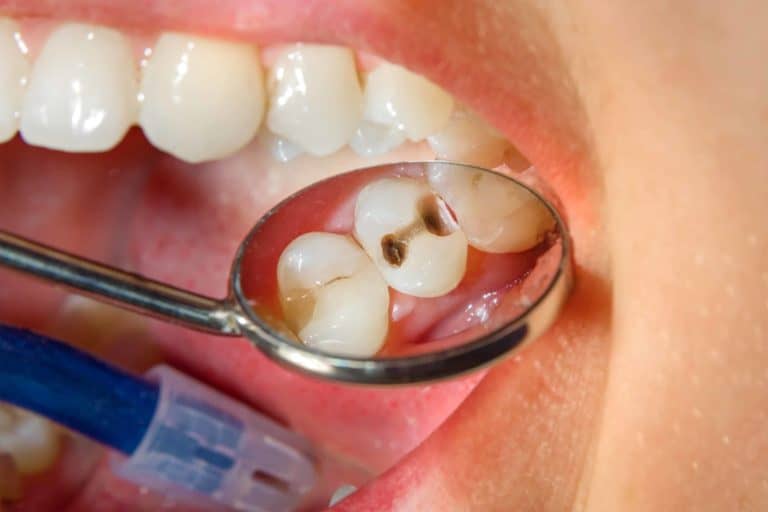It can be a daunting experience to feel a lingering pain in your teeth after a root canal procedure. But, with the right information and guidance, it is possible to decode and alleviate the discomfort.
In this article, you will be taken on a journey to understand the causes and treatments of post-root canal pain and how you can prevent it from happening again.
With the help of this article, you will be able to serve yourself and others with the right information and assistance.
Symptoms of Post-Root Canal Discomfort
Though post-root canal discomfort can vary in severity, it is important to be aware of the possible symptoms that may arise. Mild pain, sharp pain, and severe pain are all common experiences for those who have undergone a root canal treatment. In some cases, minor pain can persist even after the root canal is complete.
It is important to recognize the source of pain as a potential indicator of discomfort. If the pain is persistent, counter pain relievers or medications may be necessary to provide relief. Tooth pain should not be ignored, and it is important to seek medical attention if the pain is severe or prolonged.
Counter-pain medication can be a great way to manage pain and reduce discomfort. Knowing the symptoms of post-root canal discomfort is an important step in managing the pain.
Possible Causes of Post-Root Canal Pain
It is important to consider the possible causes of post-root canal pain, particularly when discomfort persists even after the root canal. Root canals are complex dental procedures that involve the endodontic treatment of infected tissue.
After a successful root canal procedure, some patients may experience moderate pain in their gum tissues due to the temporary filling placed at the end of the procedure. In some cases, the discomfort can be alleviated with over-the-counter pain relievers.
If the pain persists, endodontic retreatment or a cleaning process might be necessary. This could be due to an infection that was not detected during the initial root canal therapy. For this reason, it is important to visit a dentist to determine the root cause of the post-root canal pain.
With the right diagnosis and treatment plan, patients can obtain relief from their discomfort and enjoy a healthy and strong smile.
Treatment Options for Post-Root Canal Pain
Frequently, post-root canal pain can be effectively managed with the appropriate treatment plan. For those who experience persistent tooth pain after a root canal procedure, there are several treatment options available to help reduce or eliminate the discomfort.
The dental care team may recommend the use of anti-inflammatory medications to reduce inflammation and swelling or prescribe antibiotics to treat any underlying infection. A dental crown may be recommended to protect the root canal tooth and reduce the risk of post-endodontic pain.
In cases of severe pain, endodontic surgery may be necessary to repair the area.
No matter the cause of post-root canal pain, it is important to seek professional dental care for an appropriate diagnosis and treatment plan. Delaying treatment can lead to further pain and potential root canal infection. With the right treatment, post-root canal pain can be effectively managed, and the patient can return to a normal lifestyle.
Preventing Post-Root Canal Discomfort
By taking preventive measures, such as following the prescribed post-procedure care and having regular dental check-ups, patients can minimize the risk of experiencing post-root canal discomfort.
After an endodontic procedure, natural tooth structure and tooth roots are exposed, making them slightly more vulnerable to infection. An additional deep cleaning of the roots may be necessary to help ensure the success rate of the procedure. During the cleaning, the pulp tissue is removed from the canals and replaced with a permanent crown or partial denture.
To maintain good oral health, it is essential to follow the dentist’s instructions regarding post-procedure care. Regular dental check-ups are also important to help identify any problems early before they cause discomfort.
When to See a Dentist for Post-Root Canal Pain
Regularly and proactively visiting the dentist after a root canal can help diagnose and treat any potential post-procedure discomfort. Signs of post-root canal pain to look out for include tooth discolouration, a fractured tooth, persistent pain, and excessive pain when eating complex or sugary foods. Initial treatment for post-root canal pain includes methods of pain management and avoidance of certain foods.
If persistent pain continues, it is important to seek professional medical attention to ensure proper treatment. Visiting the dentist after a root canal is an important step to prevent post-root canal discomfort. By keeping an eye out for potential signs of pain and seeking medical attention when needed, you can ensure the safety and health of your root canal tooth.
Key Takeaways
Post-root canal discomfort is a common experience and can be caused by a variety of factors. Treatment options are available to reduce pain, and preventative measures can be taken to minimize the likelihood of discomfort.
It is estimated that up to 1 in 4 patients may experience post-root canal discomfort, so it is important to be aware of the potential for pain and to seek medical advice if necessary.
If you are experiencing post-root canal discomfort, Ashfield Family Dental in Ashfield, NSW is the ideal place to get help. Our team of experienced dentists in Ashfield are dedicated to providing quality care, education, and pain management solutions that are tailored to each patient’s individual needs. Contact us today for more information about our services and to find out how we can help you manage your post-root canal discomfort.




